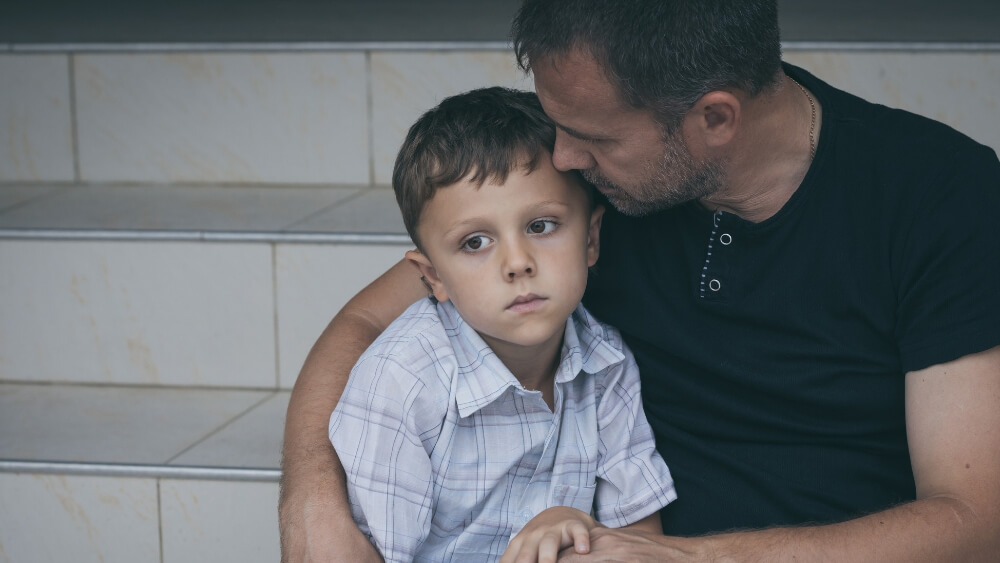Introduction
Few experiences are as painful for a parent as feeling emotionally shut out by their child. One day, your child eagerly shares stories from school, thoughts about their friends, and ideas about the world. Then, gradually—or suddenly—they become withdrawn. Conversations shrink to one-word answers. Doors begin to close, both literally and figuratively.
You may ask yourself: What happened? What did I do wrong? The silence can feel like rejection, but it’s often something more complex. Children, especially during their preteen and teenage years, begin to redefine their identity and autonomy. While it may seem like they’re pushing you away, they’re actually navigating the delicate task of growing up.
This paper explores why children—particularly older ones—stop talking to their parents, what dynamics might contribute to that silence, and most importantly, how parents can rebuild trust, open communication, and stay emotionally connected.
Common Reasons Children Stop Talking to Parents
- Developmental Shifts and Need for Autonomy
As children move into adolescence, one of their core developmental tasks is forming a separate identity. They test boundaries, crave independence, and often start to prioritize peer relationships over parental ones.
This change is natural, not personal. Silence or secrecy is sometimes an early sign that they’re trying to manage challenges on their own—something necessary for growth, even if difficult for parents to accept.
- Fear of Judgment or Disapproval
Children may withdraw if they sense that their thoughts, mistakes, or opinions will be criticized. They might think:
- “If I tell them, they’ll get mad.”
- “They’ll never understand.”
- “They’ll just lecture me again.”
If previous attempts at honesty were met with harshness or overreaction, children may start to censor themselves to avoid conflict.
- Emotional Overwhelm or Mental Health Struggles
Sometimes silence is not a sign of defiance, but of internal struggle. Anxiety, depression, bullying, or identity questions can make it hard for kids to articulate their feelings. In these cases, they may appear distant or irritable, even when they deeply want connection.
- Lack of Quality Time or Disconnection
Busy schedules, over-reliance on screens, or constant multitasking can erode daily connection. Without consistent moments of genuine engagement, kids might stop seeing parents as safe or interested conversational partners.
- Perceived Lack of Respect
Older children and teens often withdraw if they feel unheard or disrespected. Constant interruption, dismissiveness, or assumptions about their motives can make them feel powerless in conversation.
What NOT to Do When a Child Shuts Down
- Interrogate or Demand Sharing
Asking “What’s wrong with you?” or “Why won’t you talk to me?” in frustration can make children feel defensive. Pressure to talk on your terms can backfire.
- Take It Personally
While the silence feels hurtful, it’s often not about you—it’s about them. Reacting with guilt, anger, or emotional withdrawal only deepens the gap.
- Use Conversations as Teaching Moments Too Often
If every discussion turns into a lecture, analysis, or moral reminder, kids may tune out. Sometimes they just want to be heard—not corrected.
What to Say and Do to Reopen Communication
Rebuilding connection takes patience, self-awareness, and a shift in approach. Here are key strategies and phrases to support that process.
- Create Safe, Judgment-Free Zones
Tell your child explicitly:
- “You can always talk to me, even if you think I won’t agree.”
- “I might not have all the answers, but I’ll always listen.”
- “Whatever it is, I want to understand, not punish.”
Consistency is key. Show through tone and body language that you’re a safe space—not just say it.
- Focus on Listening, Not Fixing
Children open up more when they feel genuinely heard. Practice reflective listening:
- Child: “I hate school.”
- Parent: “Sounds like it’s been rough lately. Want to tell me more?”
Avoid jumping in with advice unless asked. Instead of “You should…”, try:
- “Do you want help thinking it through?”
- Look for Natural Openings
Don’t force deep talks during conflict. Choose moments when your child feels relaxed—car rides, walks, late nights, or while doing shared activities.
Keep it low-pressure. Sometimes side-by-side conversations (not face-to-face) are more comfortable.
- Be Curious, Not Controlling
Instead of interrogating (“Why did you do that?”), try curiosity:
- “That seemed important to you—can you help me understand?”
Open-ended questions build trust:
- “What was the best part of your day?”
- “What’s been stressing you out lately?”
- “If you could change one thing about school, what would it be?”
Repairing Connection: If There’s Been a Rupture
Sometimes kids go silent after specific events—harsh discipline, a broken promise, or feeling misunderstood. Repair is possible, and it often starts with humility.
Try Saying:
- “I realize I didn’t handle that well. I’m sorry.”
- “I want to be a parent you can talk to. I know I haven’t always made that easy.”
- “What can I do differently so you feel safer talking to me?”
Modeling emotional vulnerability shows strength, not weakness.
Strengthening Long-Term Connection
- Prioritize Quality Time
You don’t need grand outings. Even 10–15 minutes of focused time daily—playing, walking, cooking—builds emotional reserves.
Let your child choose the activity sometimes. Join them in their world without trying to control it.
- Respect Privacy While Staying Present
Knocking before entering their room, not reading their messages, and honoring boundaries shows respect. At the same time, stay emotionally available:
- “I’m here if you ever want to talk—about anything.”
- Celebrate Who They Are Becoming
Teens especially crave affirmation. Acknowledge their strengths, not just their struggles:
- “I really admire how you handled that.”
- “You’ve grown so much in how you think things through.”
When to Worry—and What to Do
If your child’s withdrawal is prolonged or paired with the following, it may signal deeper issues:
- Sudden drop in grades or motivation
- Changes in sleep, appetite, or mood
- Isolation from all peers and family
- Expressions of hopelessness or self-harm
In these cases, it’s essential to seek help. Begin with a gentle statement:
- “I’ve noticed some changes, and I’m worried. Would you be open to talking to someone together?”
School counselors, child psychologists, or therapists can offer support when the parent-child bond is strained or fragile.
Conclusion
When a child stops talking to a parent, it’s easy to assume the worst or feel like a failure. But silence is often a shield—not a wall. It’s a coping mechanism, a signal of unmet emotional needs, or a developmental step toward independence.
The most important thing parents can do is stay emotionally available, genuinely curious, and patient. By creating a home where listening outweighs lecturing, empathy outshines judgment, and connection is prioritized over control, the door to communication begins to reopen.
Rebuilding that bridge may take time, but it’s always worth the effort. The child who stops talking today might be the one who turns to you tomorrow—if they trust that you’ll be there, not to judge, but to understand.







